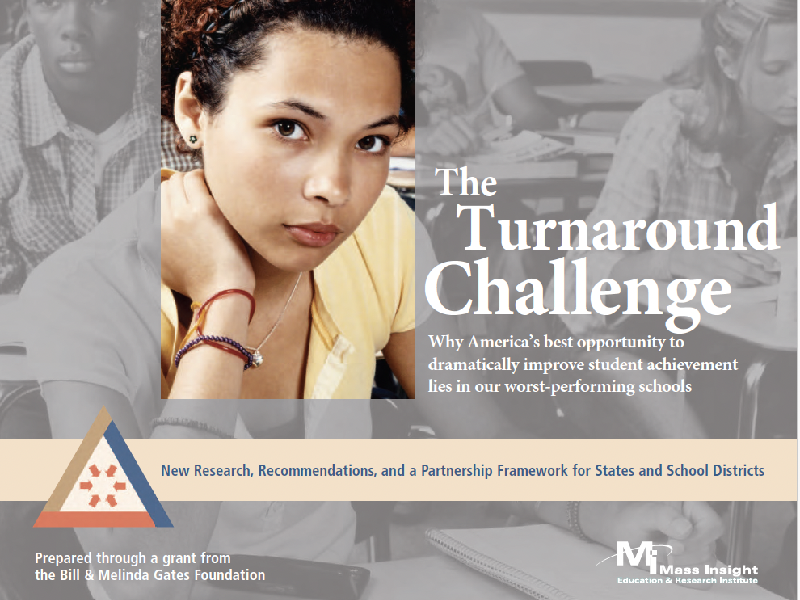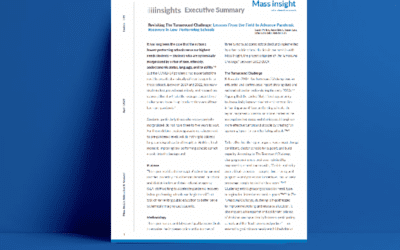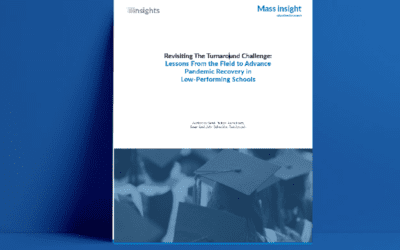The Boulder Fund grant will allow Mass Insight to pilot a new program targeting middle school readiness. May. 22, 2025 –Boston– Mass Insight Education & Research’s President and CEO, Andrea Wolfe, has been selected in the 2025 cohort of Education Leaders of...
The Turnaround Challenge
The Turnaround Challenge was published in November 2007. To date, more than 200,000 copies of the main report have been downloaded, and the report’s framework is being used to develop turnaround strategies in dozens of schools, districts and states, and is informing federal policy as well.
Download the Resource

Recent Posts
Cybersecurity Event Introduces Students to Cyber Careers
For the 5th year in a row, Mass Insight Education & Research is hosting the Cybersecurity and You Workshop to introduce Advanced Placement® (AP) STEM high school students to cybersecurity scenarios and concepts as well as postsecondary education and career paths....
Adolescent Literacy Crisis: IES Guide In Action – Webinar
What does the evidence say about how schools can improve the adolescent literacy crisis happening in our country? In this webinar, we explore the Institute of Education Sciences Reading Intervention Guide for Grades 4 through 9, found here, and diving into two of the...
You may also like
All Over The Map: Massachusetts High School Graduation Requirements
A new report by the Voices for Academic Equity Coalition, of which Mass Insight is a founding member, unpacks the status of the state’s MassCore curriculum, a recommended opt-in course of study for the state’s high school students. Massachusetts currently has just...
Executive Summary: Revisiting The Turnaround Challenge
Our report, Revisiting The Turnaround Challenge: Lessons From the Field to Advance Pandemic Recovery in Low-Performing Schools, takes a look back at the Zone model presented in our seminal 2007 report, The Turnaround Challenge, and uses three anonymous district case...
Revisiting The Turnaround Challenge: Lessons From the Field to Advance Pandemic Recovery in Low-Performing Schools
It has long been the case that the nation’s lowest performing schools serve our highest needs students — students who are systemically marginalized by virtue of race, ethnicity, socioeconomic status, language, and/or ability. But the COVID-19 pandemic has exacerbated...


